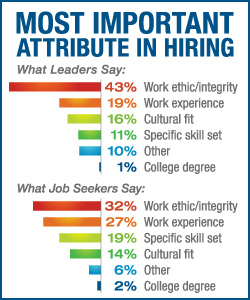 Did you know 11.5 million temporary and contract employees are hired by U.S. staffing firms over the course of a year? Sept. 16-22 is National Staffing Employee Week and we think it’s a great time to look at the impact of this industry. Temporary and contract work can lead job seekers to the possibility of full time employment, because workers can try out a prospective employer and showcase their skills for a full time job. Many people choose temporary and contract work as an employment option. They can select their work schedules and choose among a variety of diverse and challenging assignments. The staffing industry also provides free training for millions of temporary and contract employees to help meet today’s demand for skilled workers. Express also celebrates this annual week by announcing our Employee of the Year recipients.
Did you know 11.5 million temporary and contract employees are hired by U.S. staffing firms over the course of a year? Sept. 16-22 is National Staffing Employee Week and we think it’s a great time to look at the impact of this industry. Temporary and contract work can lead job seekers to the possibility of full time employment, because workers can try out a prospective employer and showcase their skills for a full time job. Many people choose temporary and contract work as an employment option. They can select their work schedules and choose among a variety of diverse and challenging assignments. The staffing industry also provides free training for millions of temporary and contract employees to help meet today’s demand for skilled workers. Express also celebrates this annual week by announcing our Employee of the Year recipients.
Staffing Statistics
In a year-over-year comparison of the payroll period Aug. 19–25, 2013, the American Staffing Association (ASA) reported that staffing employment is up 4.5%! Since the beginning of 2013, staffing employment has increased 11.7%. In 2012, staffing companies employed an average of 2.91 million temporary and contract workers per day, according to the ASA. Not only do staffing companies offer jobs in virtually all fields of work, from day labor to executive placements, staffing companies also provide scheduling and occupational flexibility, an opportunity for full time employment, choice of assignments, and training. For more information on the role of staffing companies and employment check this out.






